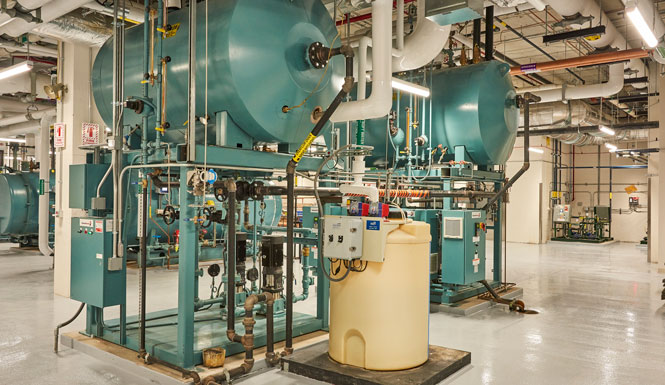A facility is highly dependent on its boiler equipment whether it’s generating steam for a manufacturing process, sanitation, or providing central heating. Proper boiler feedwater care will help extend its useful life and avoid costly disruptions.
Through the natural water cycle, raw water contains dissolved minerals and gases, such as calcium, iron, magnesium, and silica. Over time these impurities will attack the integrity of the boiler system. Proper treatment of boiler feed water is a critical part of boiler operation and maintenance. As steam is produced, dissolved solids become concentrated and form deposits inside the boiler. This leads to poor heat transfer and reduces the efficiency of the boiler.
Removing all impurities from boiler feedwater is unrealistic, however, your boiler will operate on a tolerance to the number of impurities, which is defined by Total Dissolved Solids (TDS). An acceptable amount of TDS can be defined by a boiler manufacturer or a reliable chemical treatment company. consistent boiler feedwater treatment program will remove the majority of impurities to prevent damage and safeguard your boiler system for a long life.
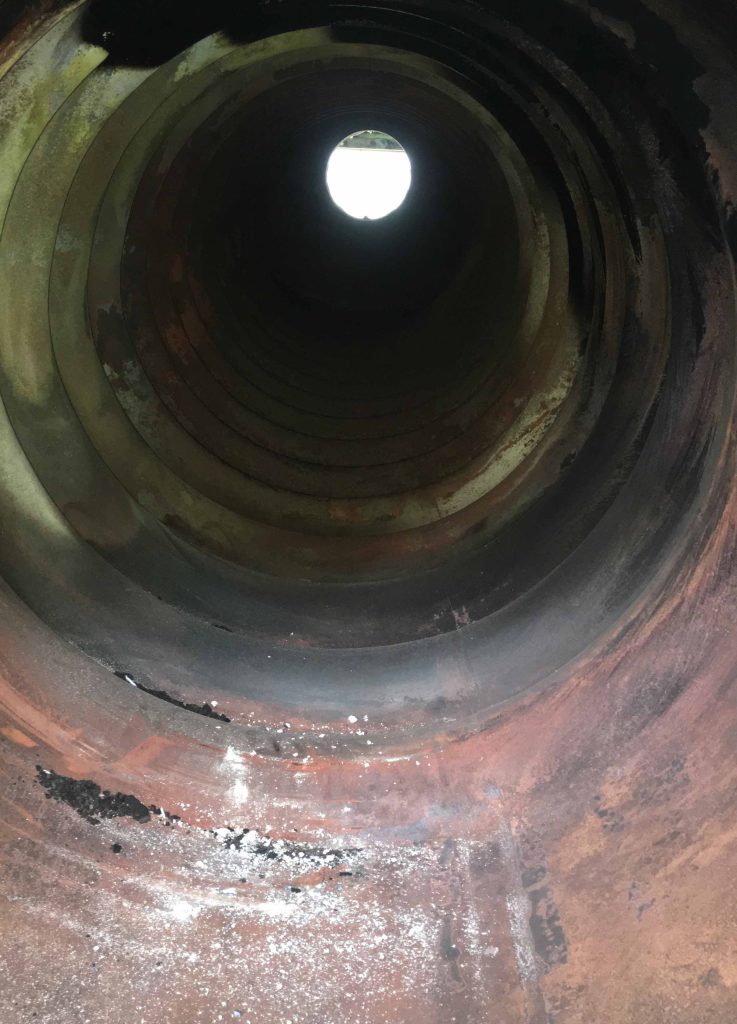
What Issues can Arise
Improper boiler feedwater maintenance can cause an array of underlying issues.
- Oxygen pitting: Dissolved oxygen will react with carbon steel in the feedwater piping, and boiler, causing oxygen pitting, which will eventually lead to cracks and leaks.
- Scale: One of the most common ailments a boiler system can face is scale. Scale is caused by an excess of dissolved solids that form on the nearby surfaces. Scale prevents proper heat transfer and leads to a loss in efficiency and possible tube leaks and failures.
Removing Harmful Minerals
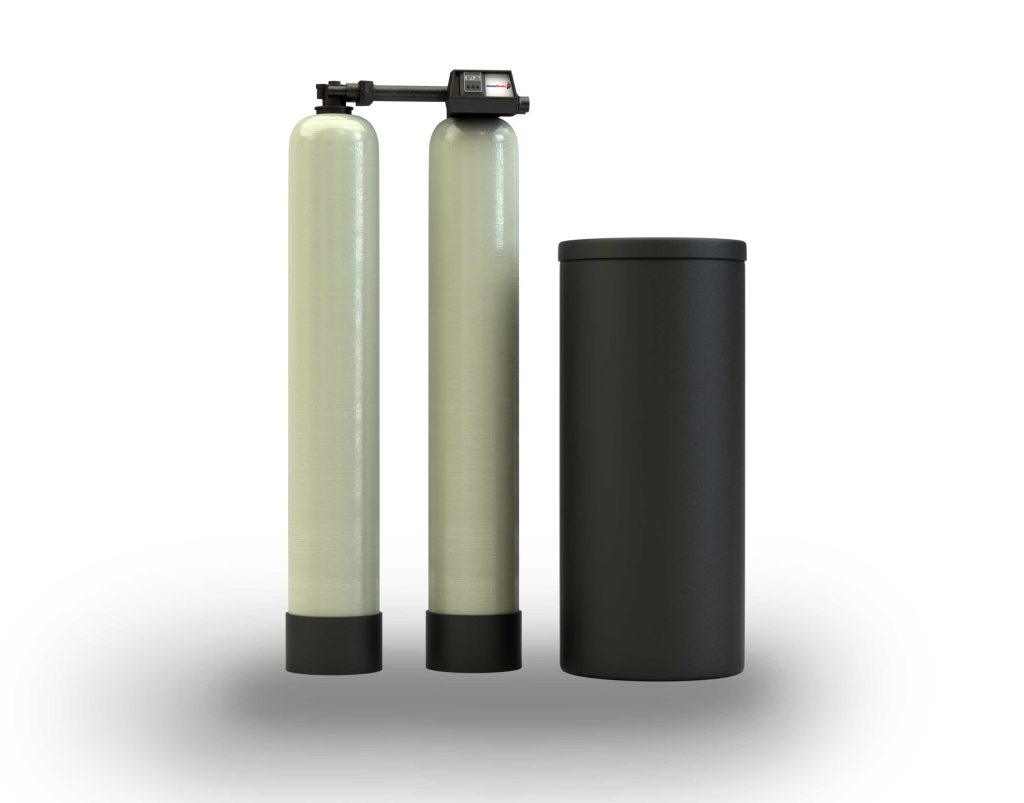
Water Softener
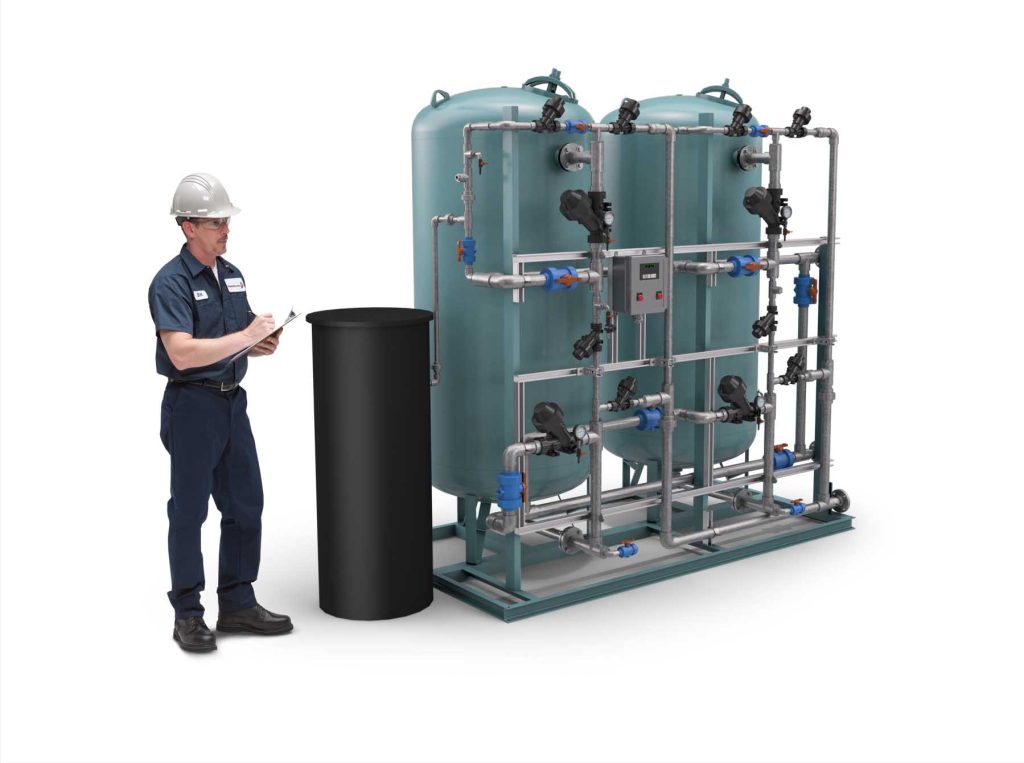
Dealkalizer
Water softener – uses a process called ion exchange to remove calcium and magnesium from the water. The minerals are replaced with a highly soluble sodium or potassium ion that does not cause scale.
Dealkalizer – with a steam system, a dealkalizer prevents scaling and reduces the opportunity for steel corrosion. The main job of the dealkalizer is to remove the bicarbonate and carbonate alkalinity of the feedwater. If the boiler feedwater contains a high level of bicarbonate alkalinity and sulfates, a dealkalizer is recommended.
Surface blowdown – is typically an automated process that expels a certain amount of boiler water from the surface of the boiler drum to control the level of dissolved solids.
Boiler Bottom blowdown is a manual process that removes sludge and scale Removes Harmful Gases
Besides minerals, water absorbs gas from the surrounding atmosphere, which should be deaerated. The type of equipment to remedy harmful minerals and gases, along with a chemical treatment program from a qualified company includes:
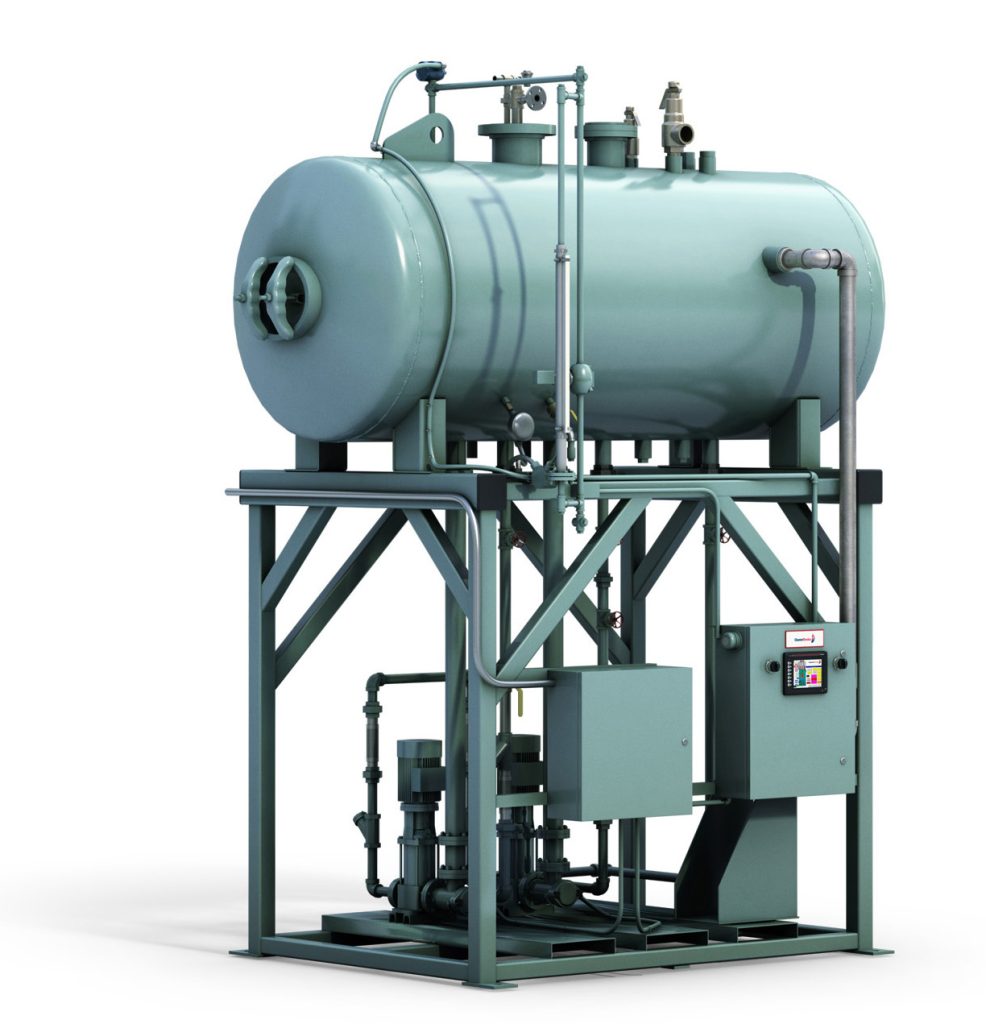
Deaerators remove impurities from feedwater
Deaerator – removes oxygen and other dissolved gases from boiler feedwater in steam systems. Deaeration reduces the concentration of dissolved oxygen and carbon dioxide to a level where corrosion is minimized.
Prevent Issues
While equipment fends off the majority of impurities in the boiler feedwater, the remainder is managed with chemical treatment. Prevent costly shutdowns and always preheat, dearate and chemically treat raw water to protect your boiler system. Routine maintenance using a Boiler Log can help identify boiler operation performance issues.
Utilizing a boiler log can not only help flag issues with your boiler feedwater, but it will also help you monitor your overall boiler’s health. Routinely check your boiler’s feedwater temperature to ensure your hot water tanks and deaerator don’t drop below the proper range.
If you have questions about feedwater equipment, chemical treatment or would like a system evaluation, contact Energy Control.

